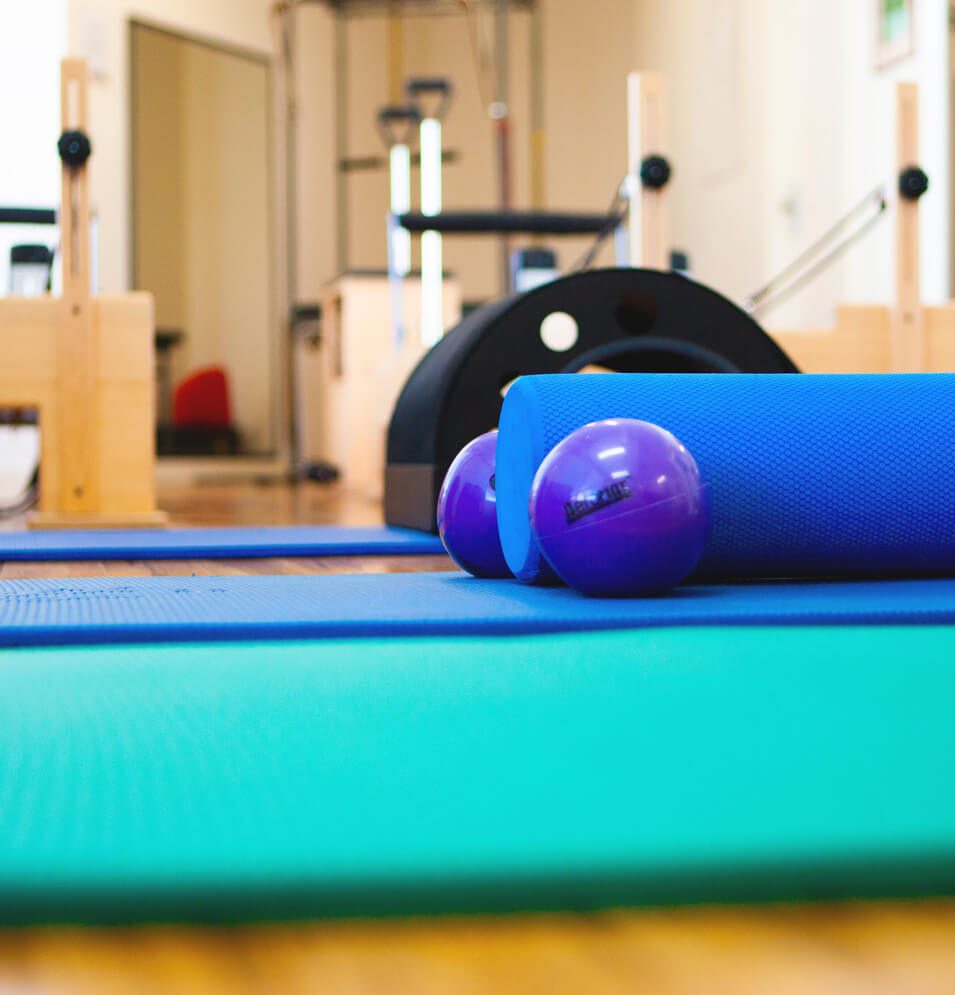Did you know the upcoming introduction of the Australian Government ‘Support at Home’ program could assist you with your home support requirements? Learn more.
We specialise in providing physiotherapy care to clients in their place of residence, whether that be at their home or aged care facility.
Our Physiotherapists are experts in managing a wide range of acute and chronic conditions which affect movement, function, and independence.
We provide a range of physiotherapy services through a patient-centred lens that ensures all clients have the best possible opportunity to achieve their goals. Our services include:
- Mobility assessments - Staying mobile is critical to our overall health and quality of life. Our team of experienced practitioners are best placed to advise on how to maintain a good level of mobility or improve mobility if it has declined due to age, pain, injury or illness.
- Falls risk assessment and prevention - Falls are a very common problem among older people. In fact, one-third of 65 year olds will have at least one fall each year. We work with our patients to identify their individual risk factors and devise an individualised program to reduce this fall risk.
- Prescription of walking aids and equipment - As our mobility declines with age or illness, we may require the use of a walking aid to enable us to stay safe when getting about. There are many aids available, such as a walking stick (which come in many varieties), a walking frame or a 4 wheeled walker to name a few. These aids can significantly improve your walking quality, duration and your ‘functional capacity’. They also act as a safety measure to reduce your risk of falling and all the complications associated with a fall.
We understand accepting the use of an aid can be difficult and so our consultations are very much tailored around our patient's needs and goals. If an aid is required, we will work with you on choosing the most appropriate aid, helping guide your selection to best suit your lifestyle.
Post-operative rehabilitation
Many operative procedures require physiotherapy to regain full strength, range of joint movement and function following surgery. Common conditions we treat post-operatively include total hip and knee replacements, post-fracture and general surgical conditions. Being seen by a physiotherapist promptly is associated with good long-term outcomes.
Strengthening programs following hospital admission
Did you know that bed rest in older adults often results in a significant decline in lower limb strength, power and aerobic capacity. 35% of older people discharged from hospital have a decline in their functional ability compared to when they were admitted. Our team works with clients to regain what was lost during their hospital rehabilitation so that they can best manage their goals and day-to-day requirements.
- Neurological rehab such as stroke, Parkinson's disease, spinal cord injuries and TBIS
- Stroke: Strokes come in varying degrees of severity and consequently have varying effects on people. They can affect movement, vision and/or speech. Some people have only short term symptoms while others are long-term or permanent. The aim of physiotherapy is to maximise a person’s ability to perform functional tasks such as walking and upper limb activities. This is achieved largely through movement retraining and strengthening. Sometimes muscle stretching and splinting may be required. The earlier rehab is commenced following a stroke, the greater the chance of a good outcome.
- Parkinson’s Disease: Parkinson’s Disease affects functional activities of daily life by disturbing movement and balance. An individualised exercise program can be designed by a physiotherapist to maintain muscle length and joint range of movement, improving initiation and co-ordination of movement and maintaining good heart and lung function.
- Some other neurological conditions which benefit from physiotherapy management include Guillain-Barre Syndrome, Acquired Brain Injuries, Huntington’s Disease, Spinal Cord Injuries and Post-Polio Syndrome.
Cardio-pulmonary rehabilitation and management
Common cardio-pulmonary conditions we see include:
- Chronic obstructive pulmonary disease: This is a common condition characterised by shortness of breath due to reduced flow of air to and from the lungs. It is not reversible and generally deteriorates over time. Physiotherapists can help you manage this condition with a specific pulmonary exercise program designed to meet your individual needs.
- Bronchiectasis: This is another obstructive lung disease characterised by excessive production of yellow/green sputum. Physiotherapists can teach you self-management strategies and assist in the clearance of these lung secretions with postural drainage and chest physio.
- Arthritis: Arthritic conditions such as osteo-arthritis and rheumatoid arthritis are painful conditions that can affect your movement and ability to perform daily tasks. Managing this pain is important so that you can maximise your functional ability. There is good evidence that aerobic exercise within ones tolerance of pain is strongly associated with good outcomes in terms of pain management and function. A tailored exercise program by a physiotherapist can help you manage your arthritic symptoms that affect you.
Chronic disease management
Long term disease and chronic pain will invariably have an adverse effect on a person’s lifestyle. Conditions such as diabetes and osteoarthritis, among others, can be managed better with an appropriate program devised by a physiotherapist consisting of appropriate exercise and learning self-management strategies.
Incontinence management
Nearly 4.8 million Australians over the age of 15, including 1 in 3 women, and 1 in 10 men suffer from incontinence. The proportion of Women suffering is higher in those who have had children. The proportion of Men is significantly higher in those who have had prostate or Urinary tract problems. Most people are unaware that Physiotherapists can effectively treat these problems. Indeed, Physiotherapists can treat a large number of a conditions often helping to avoid surgery. There is now a considerable amount of research to show how effective this form of treatment can be. Not only can Physiotherapists assist with continence problems, but they can also help you avoid these problems before and after Surgery and/or Pregnancy, through effective and safe exercise programs.
Home care packages
Physiotherapy can be accessed with funds from a home care package. We are a preferred provider for number of home care providers who administer packages and are experienced in providing appropriate physiotherapy care within the budget constraints of a care package. We pride ourselves on providing a client-centred approach, with an emphasis on ongoing communication between all key stakeholders in the clients’ care. If you are on a home care package and require physiotherapy, please contact us or speak to your Case Manager/Care Coordinator.
Other Allied Health services we provide for home care packages are:
- Occupational Therapy
- Podiatry
- Reablement Program
- Falls Prevention Program
Learn more about the upcoming introduction of the Australian Government 'Support at Home' program and how it could assist you with your homecare requirements.
Reablement program
The traditional model of care, is to provide someone with assistance to perform a task. Either this is to assist them to do the task or do it for them. One of the current initiatives of WA Health is to move from this traditional community care services model towards a ‘wellness/capacity building’ model of care, through Reablement programs.
- Reablement programs shift the focus from illness and dependence through passive help for individuals, to encouraging independence in performing activities of daily living. There is an increasing body of evidence that this shift produces more favourable outcomes for consumers with improved wellness, through achieving greater independence, and consequently reducing the amount and cost of care. In keeping with this evidence-based best practice, Lifecare has developed its Wellness and Reablement Program for individuals receiving community care.
- Reablement is the process of helping people regain, or re-learn, skills required for daily living which have been lost due to deteriorating health or advancing frailty. It is distinct from addressing specific health care issues.
- Reablement programs are led by Allied Health professionals and are time-limited (6-12 weeks) with specific goals set around activities required for daily living. The focus is on engaging individuals in a program designed to improve their ability to perform specific activities of daily living, and minimise the amount of care required for these activities. For example, making a cup of tea, dressing, independent showering etc.
Benefits to the individual
- Increased feelings of independence, empowerment and autonomy in managing their health and abilities.
- Improved physical and emotional well-being
- Improving their ability to self-care and to perform everyday activities of daily living
- Reducing the need for ongoing home care services
- Reducing the risk of falls and falls related injuries
- Avoiding hospital admission for reasons directly addressed by this program, for example, falls, medication or chronic disease mismanagement
If you are a client or a care manager of a care provider, please call us on 9335 7744 to discuss how we can help you.
National Disability Insurance Scheme (NDIS)
We are registered providers under the NDIS for:
- Physiotherapy
- Occupational Therapy
- Podiatry
We pride ourselves on working with our clients, to achieve mutually set goals and get more out of life.
If you are a client or a care manager of a care provider, please call us on 9335 7744 to discuss how we can help you.


